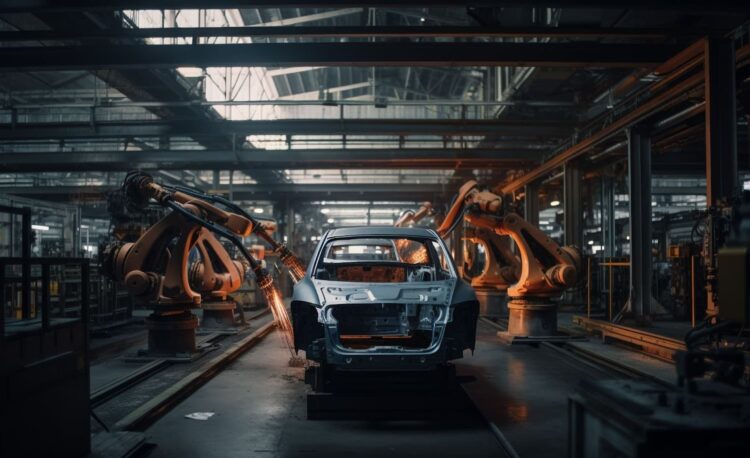The automotive industry is undergoing a revolutionary transformation driven by rapid advancements in technology, changing consumer preferences, and a global push towards sustainability. As we step into 2024, the landscape of automotive transportation is more dynamic than ever. This comprehensive overview delves into the latest trends shaping the industry, offering insights into what consumers, investors, and enthusiasts need to know.
Electric Vehicles (EVs) Take Center Stage
Electric Vehicles have moved from being a niche market to becoming the forefront of automotive innovation. With governments worldwide implementing stringent emission regulations and offering incentives for zero-emission vehicles, the EV market is experiencing unprecedented growth.
Surge in EV Sales
The global sales of electric vehicles have skyrocketed over the past few years. Manufacturers are expanding their EV portfolios, and new players are entering the market, intensifying competition and driving innovation.
Global EV Sales from 2020 to 2023 (in millions)
| Year | EV Sales |
| 2020 | 2.5 |
| 2021 | 3.1 |
| 2022 | 4.2 |
| 2023 | 5.8 |
Advancements in Battery Technology
Battery technology has seen significant improvements, leading to longer ranges and shorter charging times. Solid-state batteries are on the horizon, promising to revolutionize energy storage with higher energy densities and enhanced safety.
Autonomous Driving Technologies
Self-driving cars are no longer a distant dream. Advances in sensor technology, artificial intelligence, and machine learning are propelling autonomous vehicles (AVs) closer to mainstream adoption.
Levels of Autonomy
The Society of Automotive Engineers (SAE) defines six levels of vehicle automation:
- Level 0: No Automation
- Level 1: Driver Assistance (e.g., adaptive cruise control)
- Level 2: Partial Automation (e.g., Tesla’s Autopilot)
- Level 3: Conditional Automation (car handles all aspects but requires driver attention)
- Level 4: High Automation (car can handle most situations independently)
- Level 5: Full Automation (no human intervention required)
Manufacturers are currently focusing on achieving Level 3 and Level 4 autonomy, with several pilot programs underway in urban environments.

Regulatory and Ethical Considerations
The deployment of AVs raises significant regulatory and ethical questions. Governments are working on frameworks to ensure safety and address liability issues in the event of accidents involving autonomous vehicles.
Connected Cars and the Internet of Things (IoT)
Connectivity is becoming a standard feature in modern vehicles, enhancing the driving experience and opening up new possibilities for services and applications.
Key Connectivity Features
- Real-Time Navigation and Traffic Updates
- In-Car Wi-Fi and Entertainment Systems
- Over-the-Air (OTA) Updates
- Vehicle-to-Everything (V2X) Communication
- Remote Diagnostics and Predictive Maintenance
Impact on User Experience
Connected cars provide seamless integration with smartphones and smart home devices, offering personalized settings and enhanced safety features like automatic emergency calls in case of accidents.
Sustainability and Green Initiatives
Environmental concerns are pushing the automotive industry towards greener practices beyond just electric propulsion.
Sustainable Manufacturing
Manufacturers are adopting sustainable materials and energy-efficient production processes. The use of recycled materials and bio-based plastics is on the rise.
Carbon Neutral Goals
Many automotive companies have set targets to become carbon neutral within the next few decades, focusing on reducing emissions across the entire value chain.
Shared Mobility Services
The concept of vehicle ownership is evolving with the rise of shared mobility services.
Growth of Ride-Sharing and Car-Sharing
Urbanization and changing consumer preferences are driving the growth of services like:
- Ride-Sharing Platforms (e.g., Uber, Lyft)
- Car-Sharing Programs (e.g., Zipcar, Car2Go)
- Subscription-Based Vehicle Services
These services offer flexibility and cost savings, particularly in densely populated areas where owning a car may not be practical.
Advanced Materials and Manufacturing Techniques
Innovation in materials and manufacturing is leading to lighter, stronger, and more efficient vehicles.
Use of Advanced Materials
- Aluminum and Magnesium Alloys
- Carbon Fiber Composites
- High-Strength Steel
These materials contribute to weight reduction, improving fuel efficiency and performance.
Additive Manufacturing (3D Printing)
3D printing is revolutionizing prototyping and production, allowing for rapid development and customization of parts.
Artificial Intelligence and Machine Learning in Vehicles
AI and machine learning are enhancing various aspects of vehicles, from performance optimization to safety features.
Applications of AI in Automotive
- Driver Assistance Systems
- Predictive Maintenance
- Personalized In-Vehicle Experiences
- Energy Management in EVs
AI algorithms analyze vast amounts of data to improve vehicle functions and offer tailored services to drivers.
Cybersecurity Concerns
As vehicles become more connected, they become vulnerable to cyber threats.
Protecting Vehicle Systems
Manufacturers are investing in cybersecurity measures to protect:
- Vehicle Control Systems
- Personal Data of Users
- Communication Networks
Implementing robust encryption and security protocols is essential to prevent hacking and unauthorized access.
The automotive industry in 2024 is characterized by rapid technological advancements and a shift towards sustainable and connected mobility solutions. Electric vehicles are becoming mainstream, autonomous driving technology is progressing, and connectivity is enhancing the driving experience. As these trends continue to evolve, they will redefine transportation, offering safer, more efficient, and environmentally friendly options.
Frequently Asked Questions
What are the main factors driving the growth of electric vehicles in 2024?
The growth of electric vehicles is driven by technological advancements in battery technology, increased range, government incentives, stricter emission regulations, and a growing consumer awareness of environmental issues.
How soon can we expect fully autonomous vehicles on the roads?
While significant progress has been made, fully autonomous Level 5 vehicles are still under development. It may take several more years of testing, technological refinement, and regulatory adjustments before they are widely available.
What measures are being taken to address cybersecurity threats in connected cars?
Manufacturers are implementing advanced cybersecurity protocols, including encryption, intrusion detection systems, and regular software updates. Collaboration with cybersecurity firms and adherence to industry standards are also crucial in mitigating risks.
